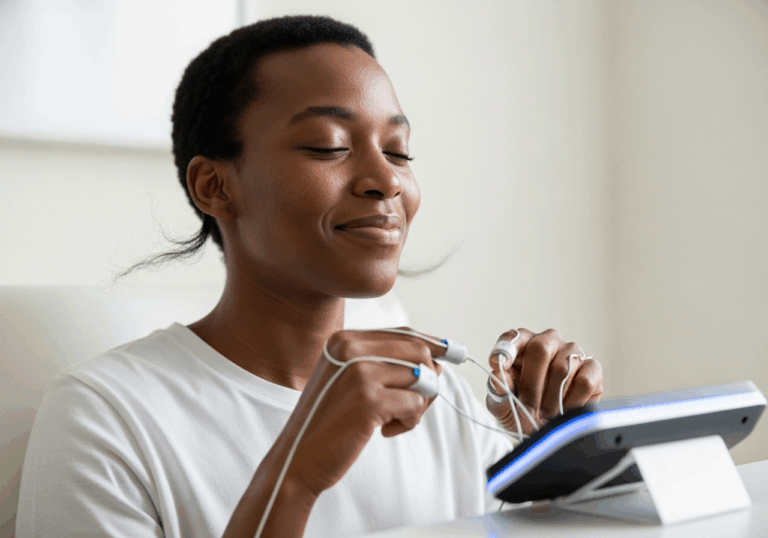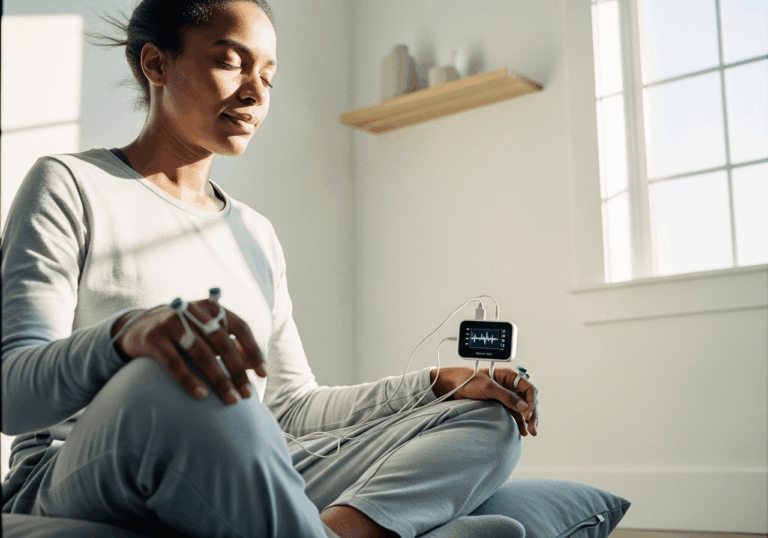Science-Backed Tips
Enhance Your Mind with ANB Practice
Regular ANB practice improves cognitive control and reduces anxiety.
📊 Did you know?
💡 Why It Matters
1️⃣
Improved cognitive function can enhance daily decision-making and productivity by up to 25%.
2️⃣
Reduced anxiety levels can lead to better overall mental health, potentially decreasing healthcare costs by 15%.
3️⃣
Enhanced autonomic regulation supports emotional stability, improving quality of life for individuals across various age groups.
✅ Try These Micro-Tips
🎯
Practice ANB for 20 minutes daily to experience cognitive and emotional benefits.
🎯
Incorporate breathing exercises into your routine at least 3 times a week.
🎯
Track your anxiety levels weekly to measure improvements over time.
🎯
Engage in group ANB sessions bi-weekly for enhanced social support and motivation.
📚 The study
This means that practicing ANB can lead to remarkable improvements in mood and mental clarity, as indicated by reliable changes in central nervous system (CNS) activity and heart rate variability (HRV).
The implications of these findings are profound: enhanced cognitive function can boost daily decision-making and productivity by as much as 25%. Furthermore, reduced anxiety levels contribute to better overall mental health, potentially lowering healthcare costs by 15%.
The study underscores the importance of autonomic regulation in fostering emotional stability, which can greatly improve the quality of life for individuals across diverse age groups.
By integrating ANB into daily routines, individuals can experience not only immediate benefits but also long-term enhancements in their mental and emotional well-being. This practice is not just a simple breathing technique; it is a powerful tool for personal transformation and improved health.
❓ Frequently Asked Questions ❓
Learn more
What is ANB and how does it work?
ANB stands for Alternate Nostril Breathing, a practice that involves breathing through one nostril at a time. It is believed to enhance autonomic regulation, leading to improved cognitive control and reduced anxiety levels.
How long should I practice ANB to see benefits?
Practicing ANB for 20 minutes daily can help you experience cognitive and emotional benefits. Consistency is key to achieving the desired improvements.
What are the cognitive benefits of regular ANB practice?
Regular ANB practice can enhance cognitive function, potentially improving daily decision-making and productivity by up to 25%. This improvement can lead to better performance in various tasks.
Can ANB help with anxiety management?
Yes, regular practice of ANB can lead to reduced anxiety levels, contributing to better overall mental health. This reduction in anxiety may also decrease healthcare costs by approximately 15%.
Is there scientific evidence supporting the benefits of ANB?
Yes, high-level evidence from 44 randomized controlled trials supports the positive effects of ANB on autonomic modulation and cognitive function. These studies included healthy and clinical subjects aged 8 to 70.
How does ANB affect emotional stability?
Enhanced autonomic regulation through ANB supports emotional stability, which can significantly improve quality of life. This benefit is observed across various age groups.
How often should I incorporate breathing exercises into my routine?
It is recommended to incorporate breathing exercises into your routine at least three times a week. This frequency can help reinforce the benefits of ANB practice.
Should I track my anxiety levels while practicing ANB?
Yes, tracking your anxiety levels weekly can help you measure improvements over time. This practice allows you to assess the effectiveness of your ANB routine.
Are group ANB sessions beneficial?
Engaging in group ANB sessions bi-weekly can provide enhanced social support and motivation. This communal practice can further amplify the benefits of individual ANB sessions.
Who can benefit from ANB practice?
Individuals across various age groups can benefit from ANB practice, as it supports improved cognitive function and emotional stability. Both healthy individuals and those with clinical conditions can experience positive outcomes.





